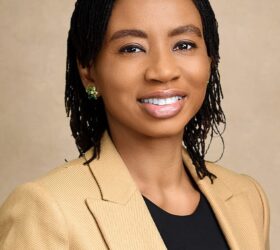The Contributory Pension Scheme CPS started as a web for peace of mind for all contributors in Federal government ministries, departments and agencies, each accommodated in the vast rotunda of new pension space at the onset of Pension Reform Act 2004.
Not long after, precisely when the originator, President Olusegun Obasanjo handed over power, the clamour for exit out of the assured pension protection of the CPS gathered momentum. It goes with the maxim; when the cats are away the mice would play. However, this may turn out to be pained exit.
The first actors were the Armed Forces and Federal Intelligence agencies. The clamour shook the government of the day. The concession was granted. However, the negative impact of the withdrawal of their pension funds was on investments in the economy. Just a couple of days ago military pensioners under the aegis of Ex-Service Men and Family Welfare Association of Nigeria protested at the Federal Ministry of Finance Abuja, where the President lamented delays in payment of pension benefits. The PRA 2004 was subsequently amended by the National Assembly in 2011 to exempt the Armed Forces, and the intelligence and security agencies from CPS.
This amendment triggered further clamour by the remaining security apparatus and other arms bearing agencies. The intending quitters include the Nigeria Police, the Nigeria Customs Service, the Nigeria Security and Civil Defence Corp, te Nigeria Prison Service, Nigeria Immigration Service and the Economic and Financial Crimes Commission.
The Nigeria Police already in the mode of CPS exit seekers since 2017 had its wish granted finally by the Ninth National Assembly. The bill sponsored by Senator Binos Dauda Yaroe representing Adamawa South was subsequently forwarded to the President for accent. The shot to exit just missed the accent by whiskers. This is so because the current Inspector General of Police, Kayode Egbetokun sees no silver lining in the place the Police is heading outside the CPS. He says without a string of doubt that exit proponents are heading for dark and ominous period that he is duty bound to steer the Police retirees away from. So, the seven years gestation to get the Police CPS exit bill to the President may be a stillbirth.
IG Egbetokun recently briefed some senior Police Officers that it was true that the bill was birthed and awaits the accent naming ceremony; but the present stand of the Police which he stoutly represents, is opposed to the bill becoming a law. “Yes it is true that the bill has been passed by the National Assembly for the Police to exit the CPS and that the bill is awaiting Presidential accent, but has anyone of you seen the details of the content of that bill. You need to go and look at the bill and see where you are exiting to.” Egbetokun is quit aware of how widespread the clamour had been. But his unbending stand is the only force that now denies the Police the exit door.
He took them through the rough road where they journeyed under the Defined Benefit Scheme with words like visuals that stick to memory, producing a closeup portrait of where they were and what an improved CPS that he is pushing would look. “Everybody is shouting ‘let us go, let us go’ You must know where you are going before you start shouting, ‘I want to go. When I became the IG, I set up a committee to look into the pension issue and we discovered that the bill awaiting the accent of the President does not favour us. If we exit the present Contributory Pension Scheme, we are going back to square one, where we were before the introduction of the scheme. Our pension will be in the hands of politicians and they will be subject it to budgetary allocation every year and when the government does not have money, you will not be paid.”
With hindsight and foresight spiralling he said, “You remember those days when retirees will go and lineup and wait for months and they will not get anything, that is the place you want us to back to. So we have to be careful not to go from frying pan to fire. I am the Inspector General of Police, you must trust me that I care about your welfare and I will fight this pension issue to make sure that Police Officers who retire get the best of pension in retirement.”
The Police Top Brass goes further to present himself as the fighter the Police should believe. “Let me disclose to you what I am working on, I am working on a pension scheme where every police will retire with his salary. That is the best and that is what I want for the Police. Not the exit you are all shouting about. Where are you going, where are you exiting to, you don’t know where you people are going and you are saying let us go. Can you tell me where you are going before you say let us go. So let us be very careful with this emotion we are attaching to exiting the scheme.”.
No doubt it takes a well digested submissions of the Committee set to look into the pension issue by the IG for him to say clearly and present the workings and doings of the CPS without a veer into the nonexistent. His composure is evident in his conclusions that the Police should stay put with CPS with several new provisions being put forward at retirement though. This should be applauded in the midst of exit spree, especially when the National Assembly that did the legislative work on the executive bill has exited ditto with Zamfara state.
The National Pension Commission share the same front with the IG. The Pension Commission still stands on the position it promoted in the first quarter of 2017 when it opposed the exit of the Police and other paramilitary agencies. PenCom claimed that return to DBS was going back to the pension palaver with its huge pension liabilities arising from lack of adequate budgetary provisions. The previous pension administration the Commission pointed to was largely weak, inefficient, less transparent, cumbersome and marred with corrupt practices.
PenCom was quick to remind that DBS was jettisoned because of its multifaceted failures. On account of this, the Federal Government under President Obasanjo considered and after a detailed evaluation decided to take measures aimed at developing a system that is sustainable and has capacity to achieve the ultimate goal of providing a stable, predictable and adequate source of retirement income for employees in both the public and private sectors in Nigeria.
The CPS has also introduced transparency and integrity in the pension administration system in Nigeria. From inception of the reform to date PenCom is proud to say there had not been a single incidence of fraud or mismanagement of the pension funds and asset under the scheme.
Exempting of any agency or state PenCom reiterates, would lead to divestment from FGN securities before maturity, which would have ripple effects on not only the finances of government, but on the entire financial system.
Aside from resulting in loss of confidence in the pension reform, another immediate negative impact of exempting the Regulator weighs is the erosion of the long term investible funds accumulated under the CPS, which is suitable for economic development. The consequence for Nigerians is that it would undermine the process of attracting development initiatives in the infrastructure, housing and real sectors of the economy, which are largely hinged on the utilisation of a portion of the pool of pension assets.





































